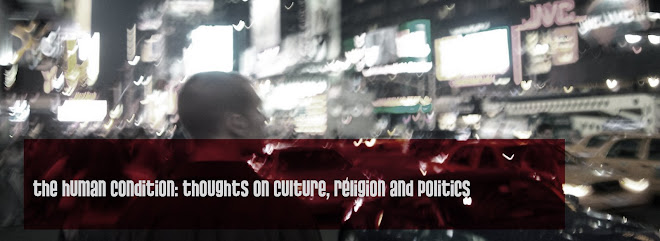My prof and I started butting heads a little on the subject of Jeremiah Wright when discussing this portion of my paper. I'm not a fan of him either, and I think Obama was right in denouncing him; it was all he could do. That said, while I think some of his ideas are nutty, I can appreciate his point of view and I understand that, in the black church context, he's not that unique. The Afro-centric movement wasn't about saying black people are superior, but that black people have their own unique heritage and they will not conform to a dominate culture that has oppressed them. Recently, I saw a black preacher discussing Wright, and he mentioned that one of Martin Luther King's sermons were entitled something like"Why America is Going to Hell." His point being that most Americans are unaware of the more fiery sermons that King gave.
I like what a lot of what Jim Wallis says. I do think he's too aligned to the Democratic party for him to be considered non-partisan, but I think what he's doing is important. Wallis is essentially saying that Christian values encompass values that everyone finds important, and that they should unify rather than divide. Wallis points to an example of an agnostic who thanked him for making him feel included and spiritually inspired after he spoke at a rally. Wallis is also trying to rescue Jesus, if you will, from his connection with the political Right. In doing this, hopefully, Wallis will let Jesus be Jesus and not just create a liberal parody in his efforts.
-------------------------------------------------------------------------------------------------
Those who are commonly referred to as the religious Left include a diverse group of people including civil rights leaders such as Jesse Jackson and Al Sharpton, and liberal, mainline, church organizations like the World Council of Churches. They find their modern day roots in the civil rights movement and the work of Dr. Martin Luther King Jr. Jesse Jackson, of course, worked closely with Dr. King. Partly because of this history, the United States is looked at with a critical eye. Rather than longingly wishing the United States would return to its Christian heritage, those on the religious Left view those years as a time punctuated by racial bigotry, discrimination and oppression. Rather than thinking of the times of prayer that opened sessions of congress, as Schaeffer cited, those in the religious Left might cite Fredrick Douglass (1968 [1845]) in regards to America’s “Christian” past:
"Between the Christianity of this land, and the Christianity of Christ, I recognize the widest possible difference – so wide, that to receive the one as good, pure, and holy, is of necessity to reject the other as bad, corrupt and wicked… I love the pure, peaceable, and impartial Christianity of Christ; I therefore hate the corrupt, slaveholding, women-whipping, cradle-plundering, partial and hypocritical Christianity of this land. Indeed, I can see no reason, but the most deceitful one, for calling the religion of this land Christianity (p. 120)."
Currently, an extreme example of this criticism towards America has been expressed in the sermons, which have been blasted across the media, by presidential candidate, Barack Obama’s, former pastor the Reverend Jeremiah Wright.
While Martin Luther King regularly invoked God into his messages of racial equality, leaders like Jesse Jackson and Al Sharpton, who have been in the national spotlight for years, rarely do. Instead, they have focused more on the message of civil rights for African Americans and social justice. They are also closely aligned with the Democratic Party. In sum, the religious Left has looked much like the religious Right in their engagement with the political system to bring about change that reflects their pet Christian values. However, Jim Wallis, a long time evangelical leader on the Left, has recently campaigned for a new dialogue on the matters of faith and politics.
In his 2005 book God’s Politics: Why the Right Gets It Wrong and the Left Doesn’t Get It Wallis says this concerning values: “I believe the values debate should be the future of American politics. Of course, the questions are which values and whose values? ... Will the moral values debate cut both ways in politics, challenging both the political Left and the political Right, both Republicans, and Democrats? (p. xxi)” Wallis calls for Christians of both parties and of all sensibilities to have a discussion on values that transcends both ideology and political party. Wallis advocates that every issue, including: social justice, war, racism, abortion, the family, capital punishment, the AIDS pandemic and the environment, be put on the table. Jackson and Perkins express similar sentiments in their aforementioned book. However, division remains between both groups and both continue to share the commonality of using to political process to advance Christian values.

No comments:
Post a Comment